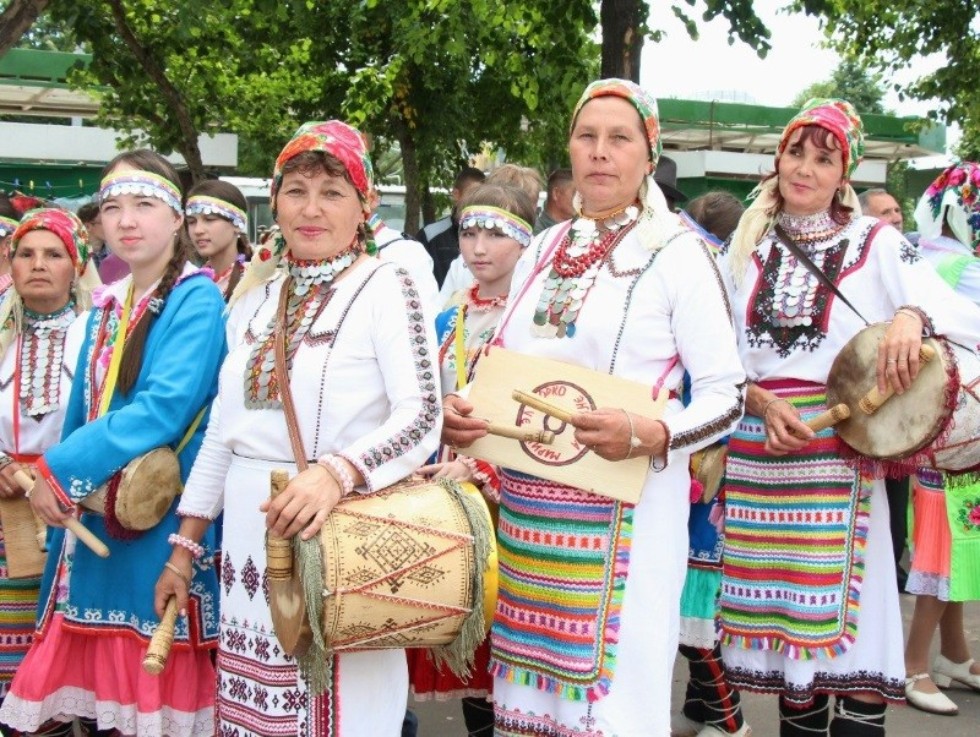Mari and Karelian respondents give insight into necessary improvements of local language and culture education

A study by Kazan Federal University and University of Jyvaskyla appeared in Compare.
The study was initiated in 2018 by three researchers who have an established interest in Indigenous issues - Daria Khanolainen, Elena Semenova (both working at Kazan Federal University), and Yulia Nesterova (who at the time was completing her PhD at the University of Hong Kong). Yulia, who is now a research fellow at the University of Glasgow, Scotland, has conducted extensive research in a number of countries across the world (for example, Brazil, Ethiopia, Taiwan) focusing her work on the rights, education, and wellbeing of Indigenous peoples. Daria and Elena invited Yulia to join the project that would critically evaluate education offered to Indigenous peoples in the Republics of Karelia and Mari El (two Russian regions). The project is still ongoing, and more articles are expected to come out in the nearest future.
Ten Karelian and ten Mari people volunteered to participate in in-depth semi-structured interviews. As a result, the study identified a number of elements that can help to better understand Indigenous education in Russia. The findings show that while Mari participants had formal and informal educational opportunities to learn about their culture, identity, history, traditions, and to transmit the language than Karelian participants, both groups' education about their Indigenous roots and related matters was fragmented and unsystematic, both at home and in school. While some Mari and Karelian people sought opportunities to learn about their respective groups, the majority felt relieved that they did not have to address, discuss and reveal, what was at the time, a stigmatised and shamed Indigenous identity that led to discrimination. As children, many chose to abandon their roots, cultures, and languages to assimilate into the dominant society in order not to stand out. Now, however, many reportedly value and embrace their cultures, identities, and languages, and wish for more educational opportunities to strengthen and promote those. The participants believe in the importance of incorporating Indigenous material in the school curricular to encourage and support children's learning about their roots, histories, and cultures. They also believe that such education should be extended to include majority population so that they could understand Indigenous cultures and the need to protect them.
Based on the findings, researchers have come up with a list of recommendations that would support the development of education systems and educational opportunities in the Republic of Mari El and the Republic of Karelia in accordance with the wishes and needs of their Indigenous communities. The main recommendation is to ensure that Indigenous people themselves are owners of educational and learning programmes that aim to support their learning and language revival. This way, policymakers can ensure that programs are context-specific, address the issue at hand, and there is community buy-in.
Researchers plan to extend their project by developing a survey based on their qualitative findings. They also consider the possibility of expanding the project to include other Indigenous groups that live in Russia and partner with researchers in other countries to conduct cross-country analysis of Indigenous education.
Indigenous education in Russia: opportunities for healing and revival of the Mari and Karelian Indigenous groups?
https://www.tandfonline.com/doi/full/10.1080/03057925.2020.1834350
Source text: Daria Khanolainen
Photo: finnougоria.ru
Editing: Yury Nurmeev